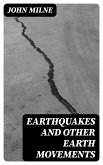In "One Hundred Proofs That the Earth Is Not a Globe," William Carpenter presents a compelling yet controversial argument against the widely accepted heliocentric model of the Earth. Utilizing a blend of scientific reasoning and rhetorical persuasion, Carpenter meticulously outlines a series of proofs intended to validate his flat Earth theory. Written in a polemical style, the book draws upon a range of observations and experiments that Carpenter interprets through a critical lens of skepticism towards mainstream science, thereby situating itself within the 19th-century debates on geology, astronomy, and scientific authority. William Carpenter, an English writer and anti-establishment thinker, was inspired to challenge prevailing scientific paradigms based on his own observations and frustrations with established cosmology. His background in literature and a burgeoning interest in controversial theories of his time inform the depth of his arguments. Carpenter's work reflects an era marked by rapid scientific advancement, and his rejection of scientific consensus illustrates his commitment to a contrarian viewpoint, one that resonated with certain segments of society seeking alternatives to orthodoxy. This book is recommended for readers interested in the history of scientific debate and the cultural implications of disproven theories. Carpenter's bold assertions invite critical engagement and encourage readers to examine the validity of scientific claims. Whether approached as a historical artifact or a philosophical challenge, "One Hundred Proofs That the Earth Is Not a Globe" offers a fascinating glimpse into a world where the boundaries of scientific inquiry were tested.
Dieser Download kann aus rechtlichen Gründen nur mit Rechnungsadresse in A, B, BG, CY, CZ, D, DK, EW, E, FIN, F, GR, H, IRL, I, LT, L, LR, M, NL, PL, P, R, S, SLO, SK ausgeliefert werden.









